Abstract
This paper describes the origins and evolution of the term radical behaviorism. John B. Watson's coining of behaviorism in 1913 is presented first, followed by a discussion of the uses of “radical” within psychology during these early years. When the term radical behaviorism first emerged in the early 1920s, its referent was Watson's behaviorism, most specifically his stance on consciousness. In the 1930s, B. F. Skinner described his own position with the term radical behaviorism in an unpublished manuscript, and then in 1945 first referred in print to his views as such. Today, radical behaviorism is generally applied to Skinner's views alone. The paper concludes with a brief discussion of a similarity in Watson's and Skinner's positions on consciousness, which seems a possible historical and philosophical connection between their respective radical behaviorisms.
Keywords: radical behaviorism; behaviorism; “radical,” history; John B. Watson; B. F. Skinner
Full text
PDF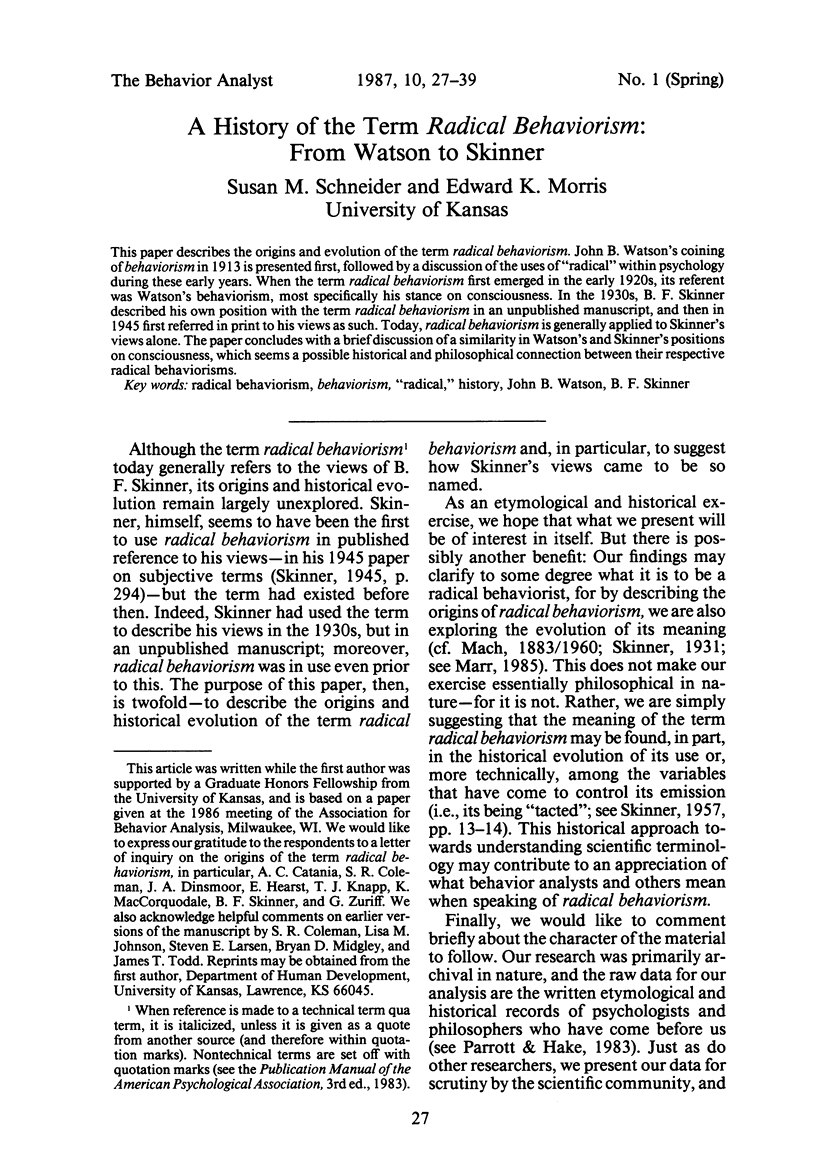
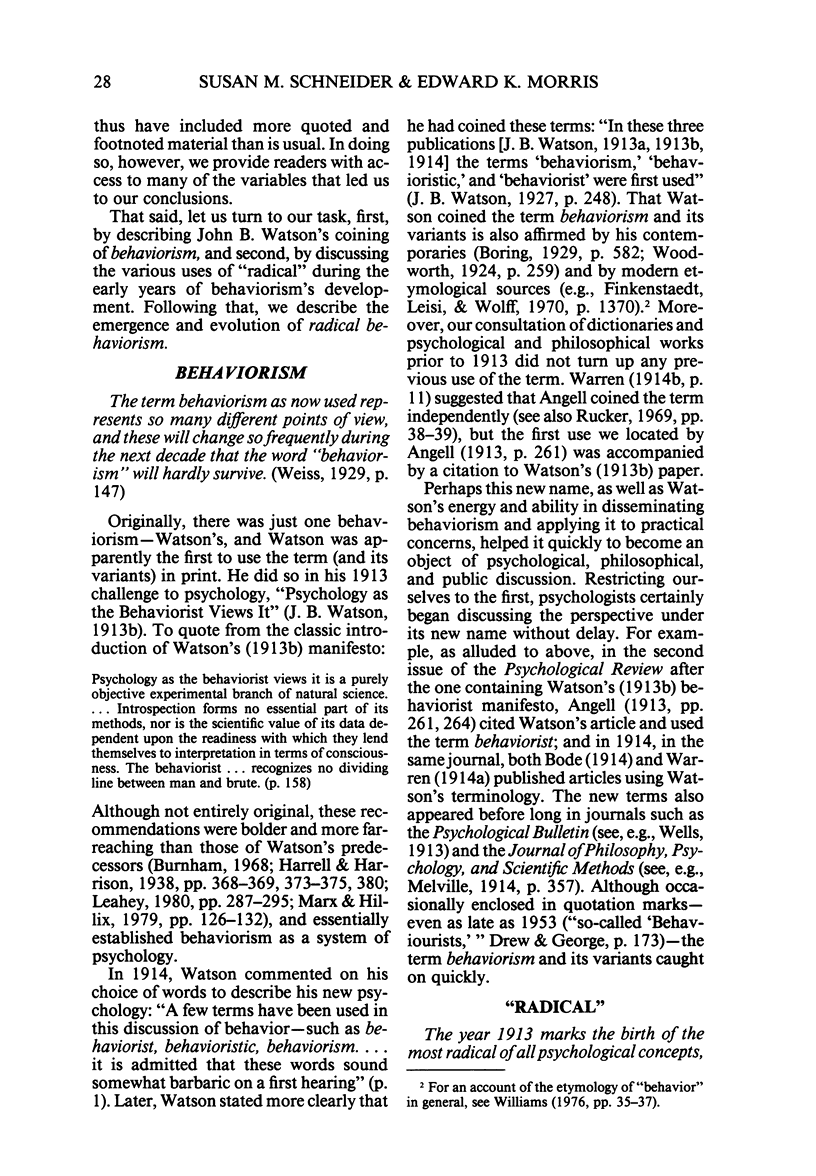
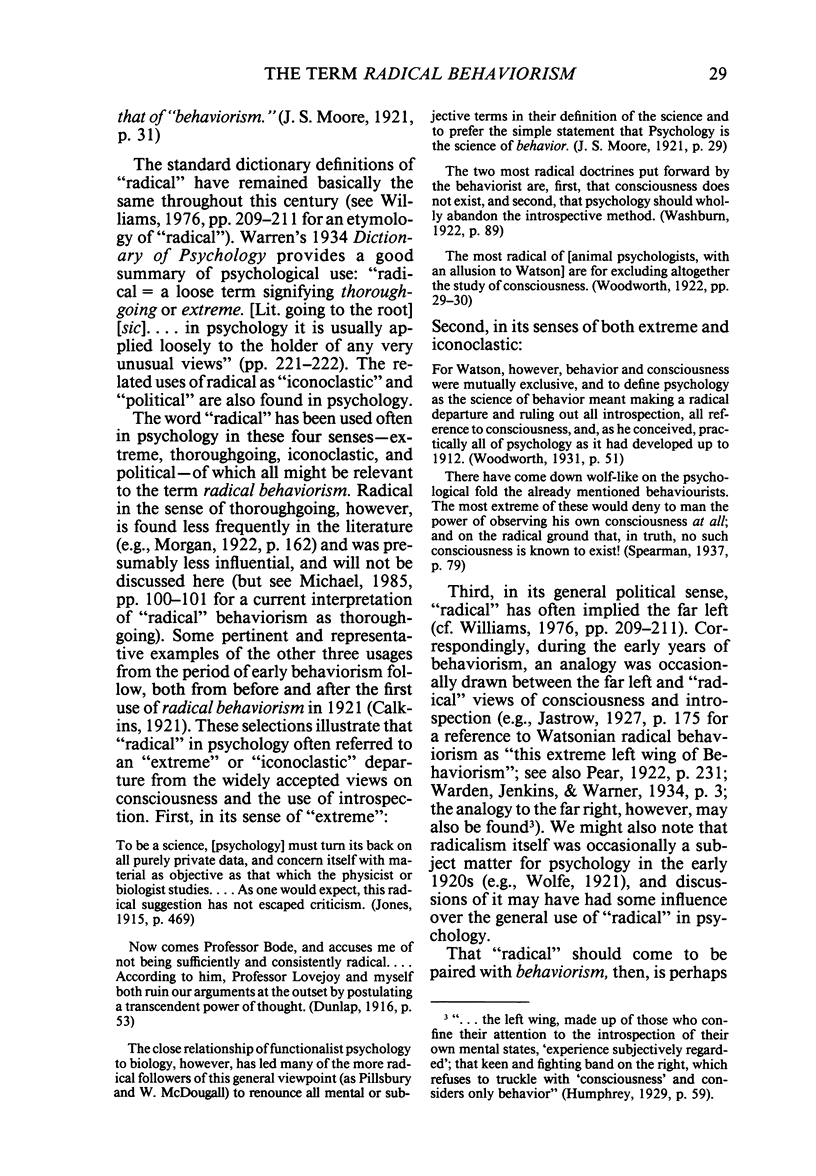
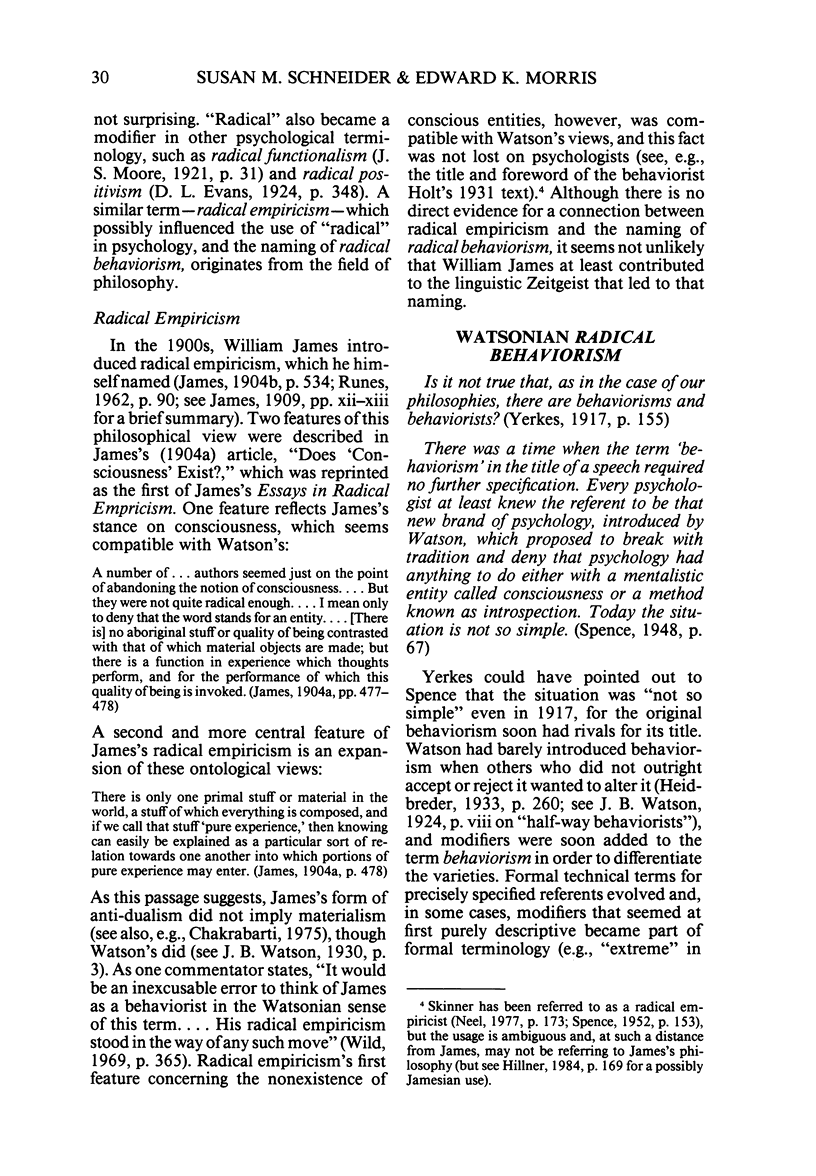
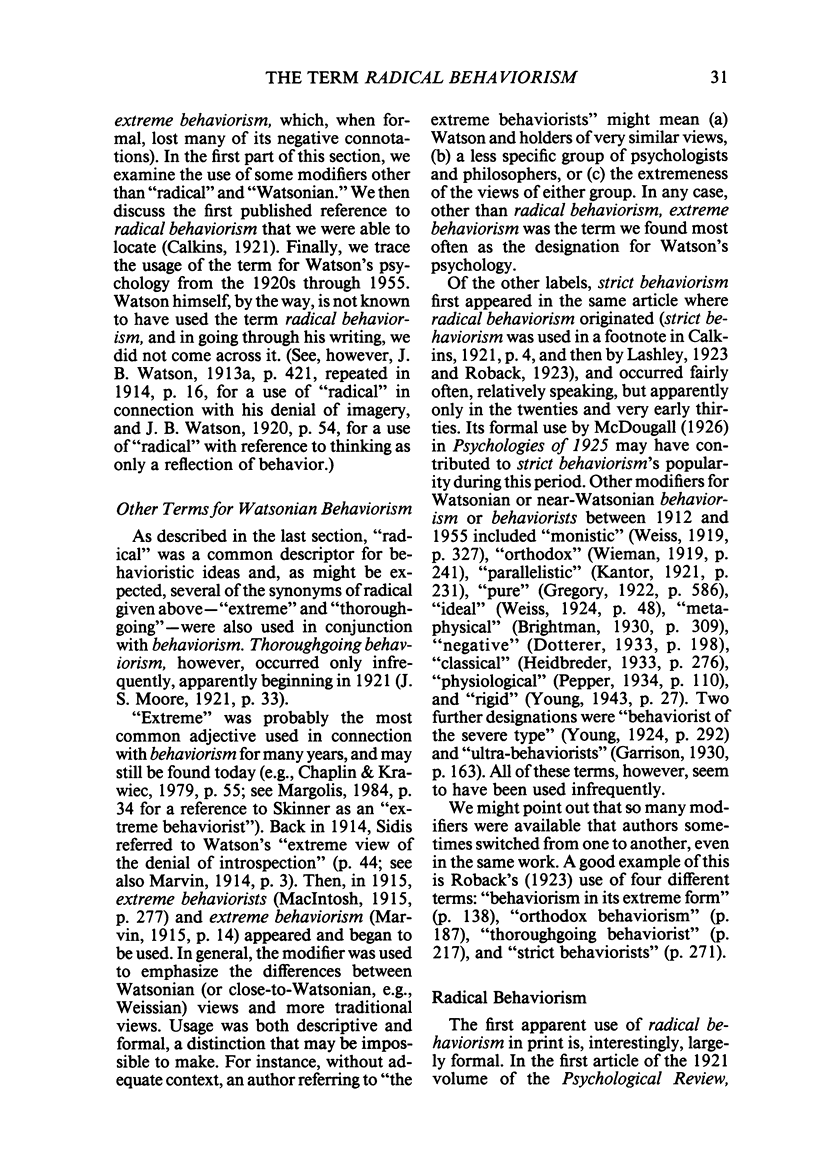
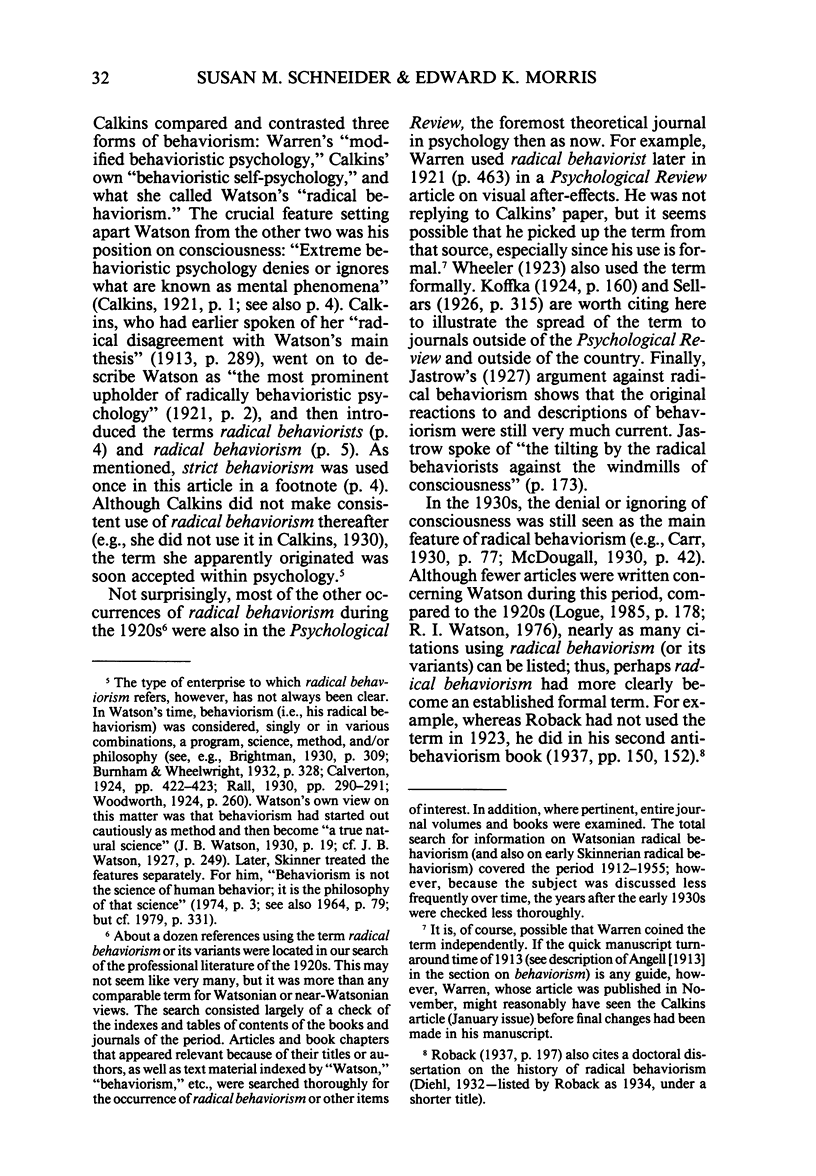
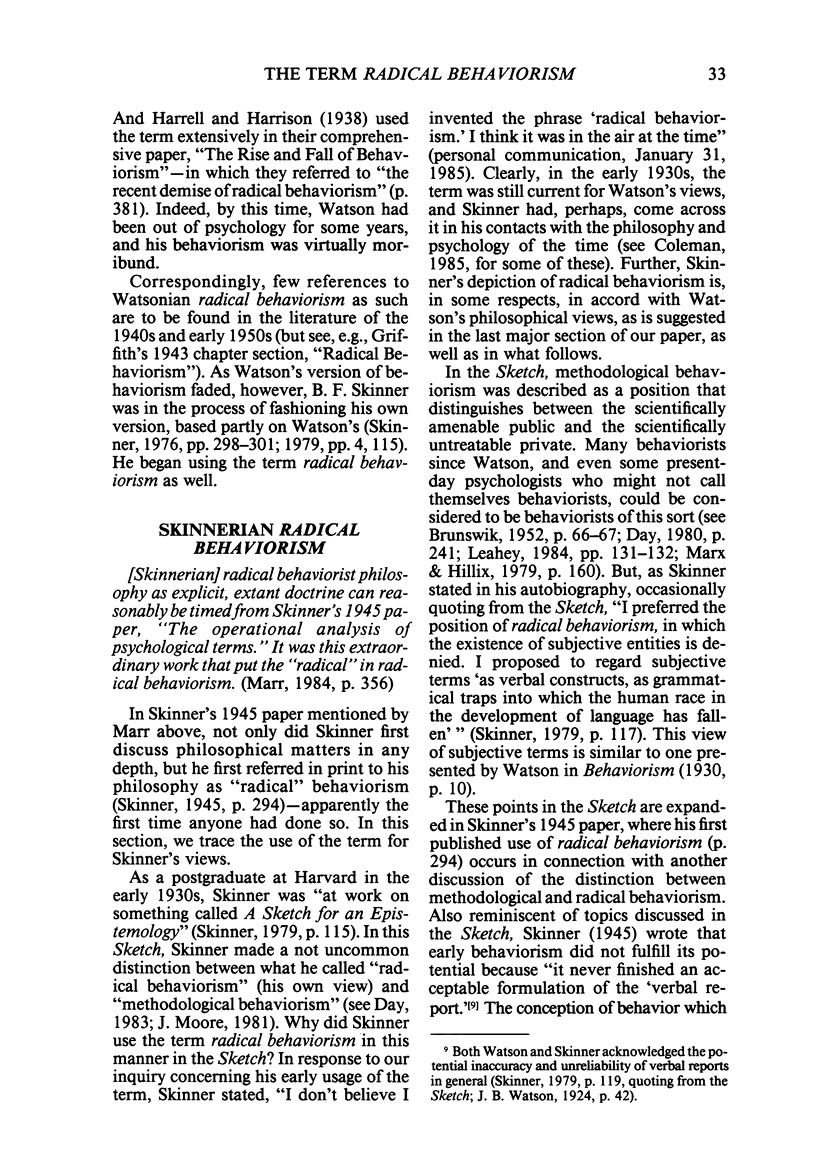
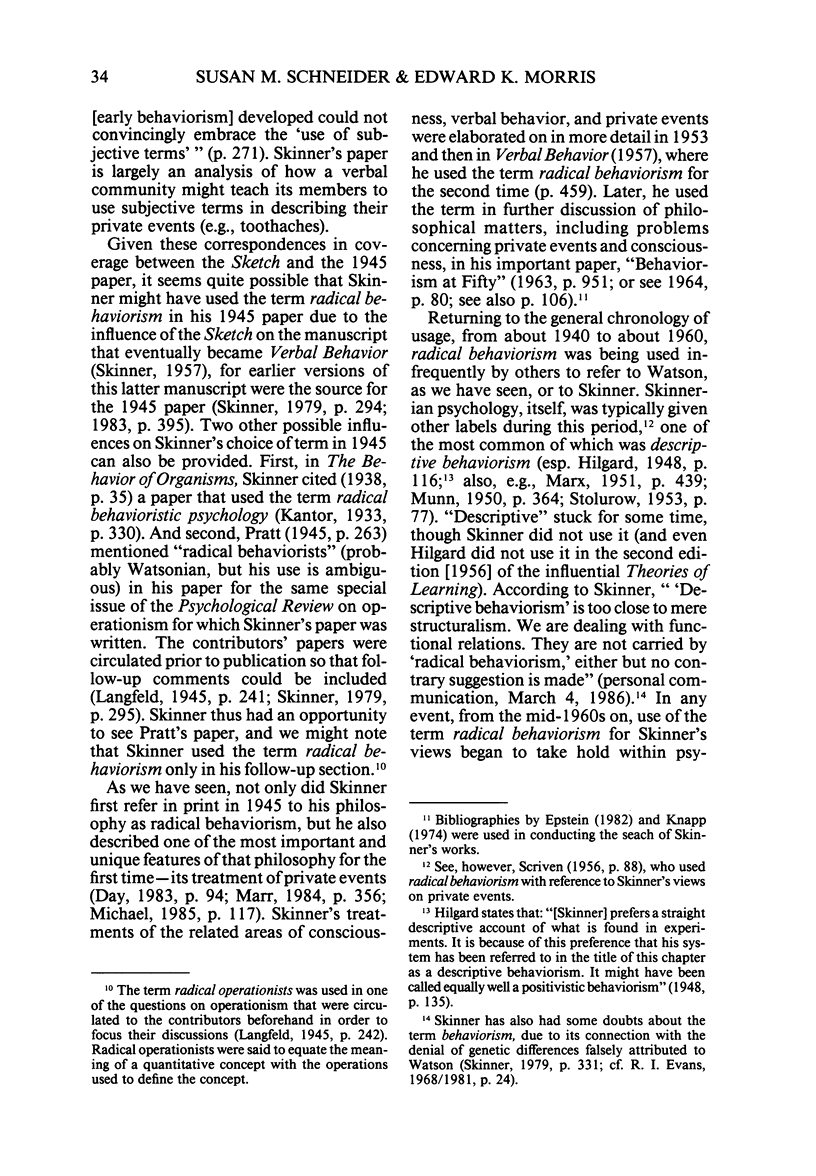
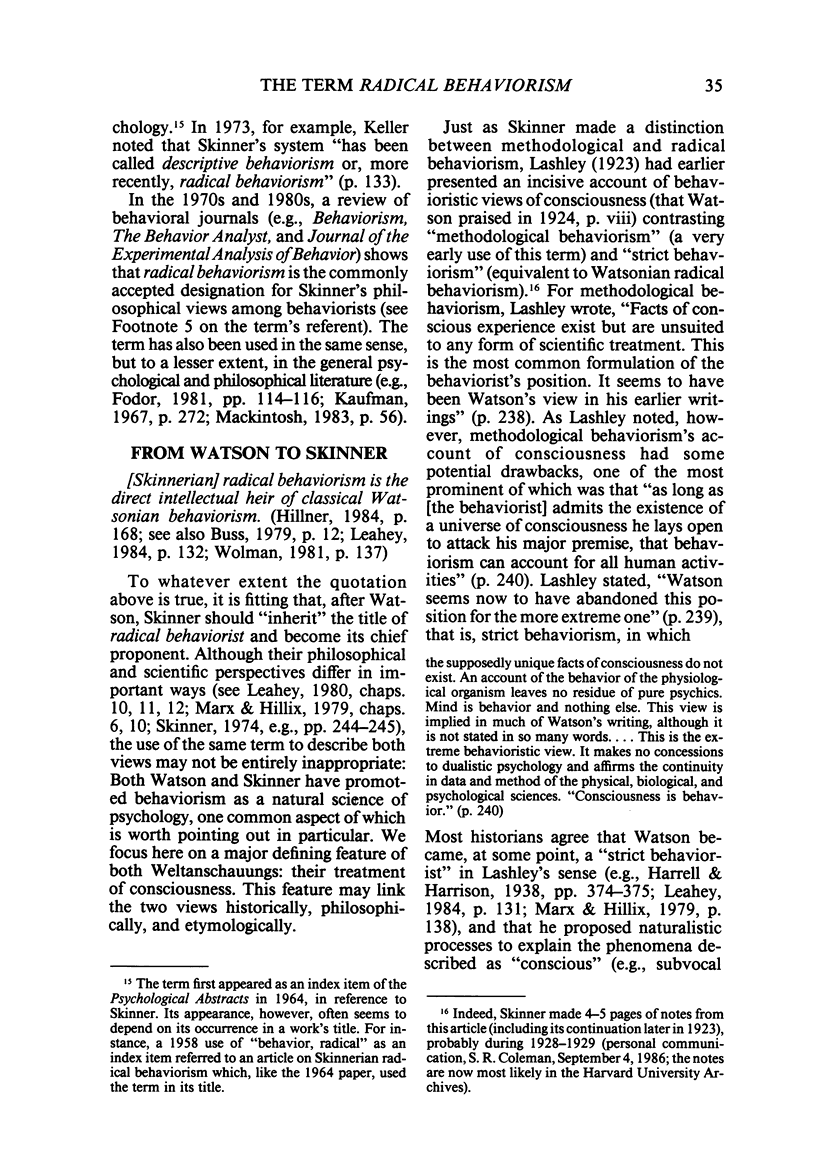
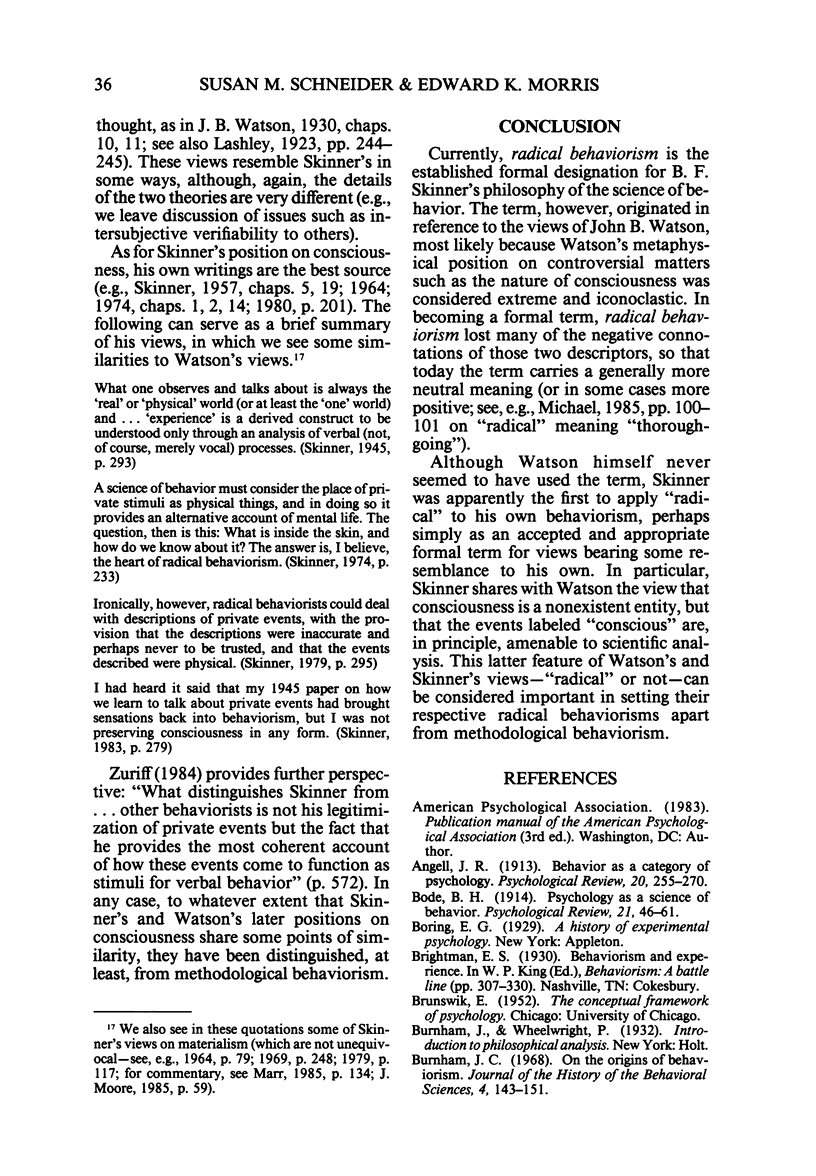
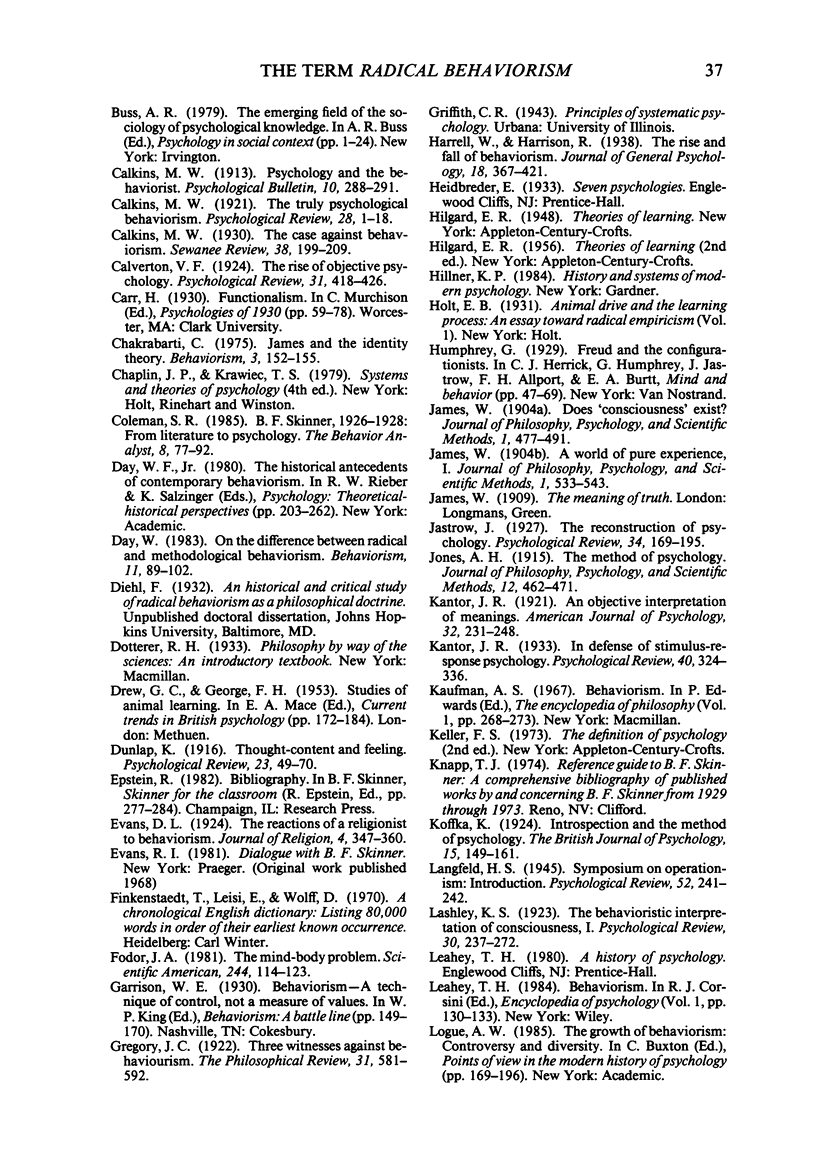
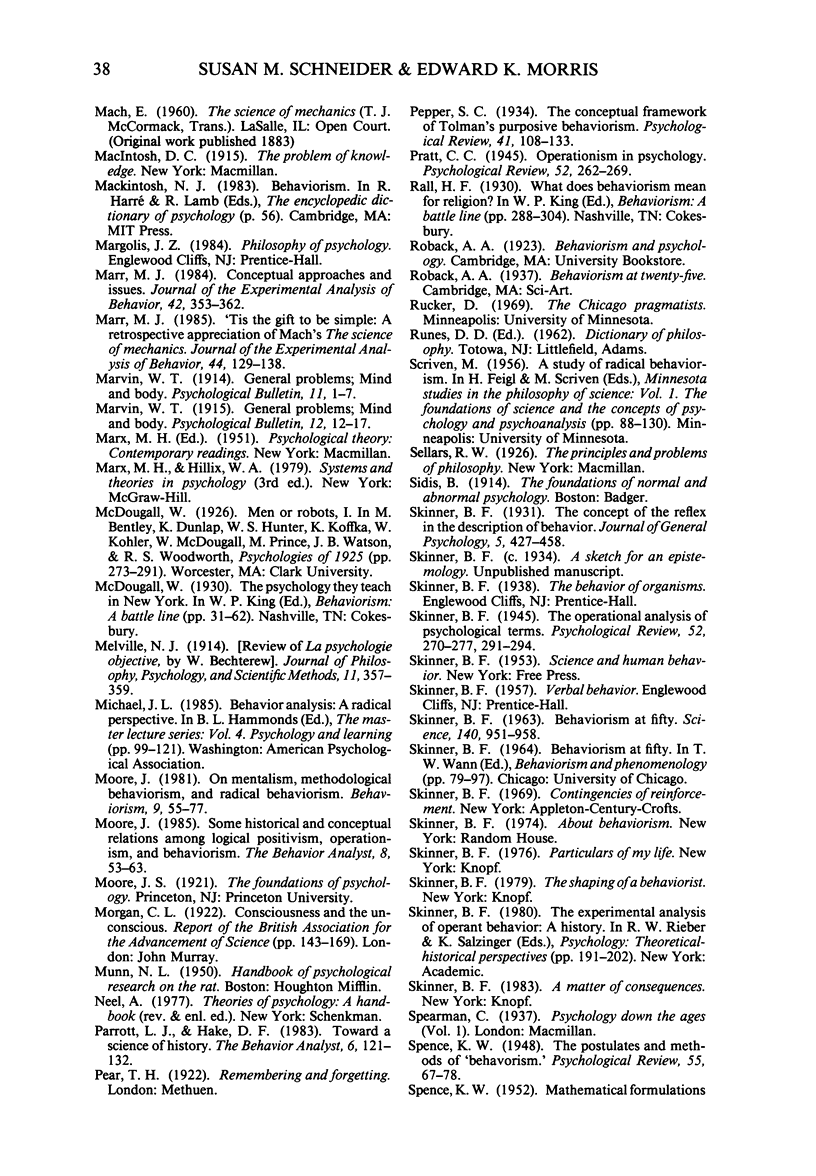
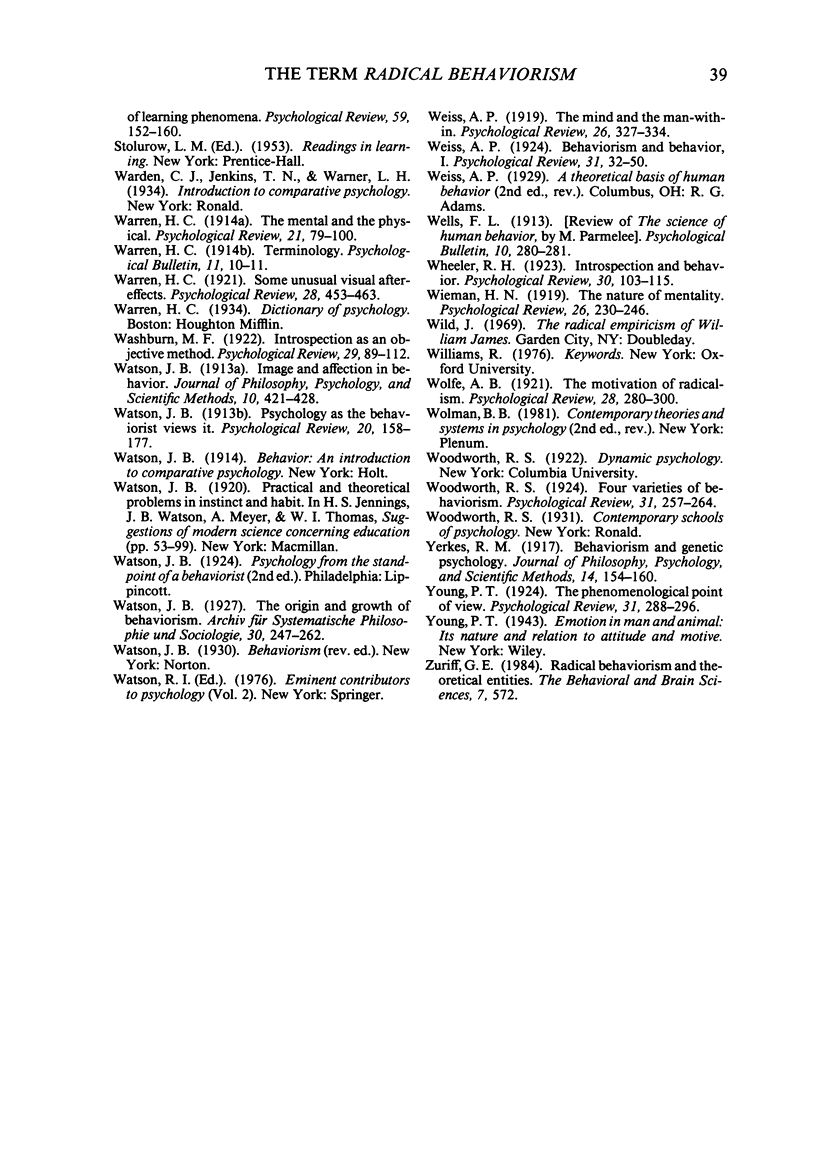
Selected References
These references are in PubMed. This may not be the complete list of references from this article.
- Fodor J. A. The mind-body problem. Sci Am. 1981 Jan;244(1):114-20, 122-3. doi: 10.1038/scientificamerican0181-114. [DOI] [PubMed] [Google Scholar]
- Marr M. J. Conceptual approaches and issues. J Exp Anal Behav. 1984 Nov;42(3):353–362. doi: 10.1901/jeab.1984.42-353. [DOI] [PMC free article] [PubMed] [Google Scholar]
- Moore J. Some historical and conceptual relations among logical positivism, operationism, and behaviorism. Behav Anal. 1985 Spring;8(1):53–63. doi: 10.1007/BF03391912. [DOI] [PMC free article] [PubMed] [Google Scholar]
- doi: 10.1901/jeab.1985.44-129. [DOI] [PMC free article] [Google Scholar]
- Parrott L. J., Hake D. F. Toward a science of history. Behav Anal. 1983 Fall;6(2):121–132. doi: 10.1007/BF03392391. [DOI] [PMC free article] [PubMed] [Google Scholar]
- SKINNER B. F. Behaviorism at fifty. Science. 1963 May 31;140(3570):951–958. doi: 10.1126/science.140.3570.951. [DOI] [PubMed] [Google Scholar]
- SPENCE K. W. Mathematical formulations of learning phenomena. Psychol Rev. 1952 Mar;59(2):152–160. doi: 10.1037/h0058010. [DOI] [PubMed] [Google Scholar]
- SPENCE K. W. The postulates and methods of behaviorism. Psychol Rev. 1948 Mar;55(2):67–78. doi: 10.1037/h0063589. [DOI] [PubMed] [Google Scholar]


